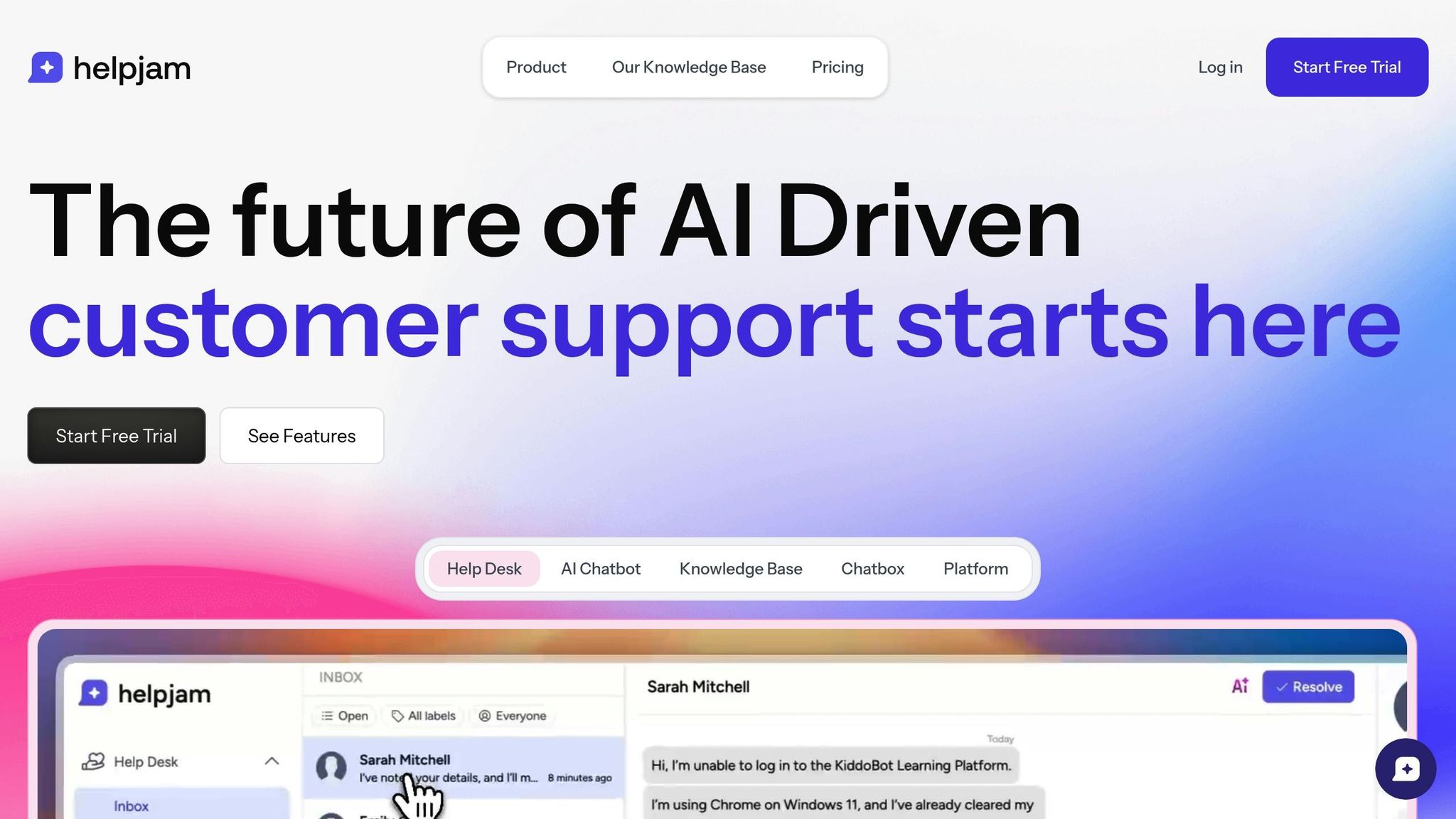The Importance of Trust in Human-AI Collaboration
Explore the essential role of trust in AI support systems and discover how to enhance collaboration between humans and AI.

Trust is the foundation of successful human-AI collaboration. Without it, AI systems in customer support fail to meet expectations, leading to inefficiency and frustration. Here's why trust matters and how to build it:
- AI’s Role in Support: Handles FAQs, routes tickets, translates languages, and works 24/7.
- Why Trust Matters: Teams rely on accurate, reliable AI to save time, while customers expect smooth, secure, and helpful interactions.
- Key Elements of Trust:
- Clear distinction between AI and human agents.
- Accurate, up-to-date responses.
- Seamless handoffs to human agents when needed.
- Human oversight to refine AI performance.
- Strong data security and compliance.
Failing to address these can lead to inefficiency, outdated systems, and loss of confidence in AI. Building trust ensures faster resolutions, better experiences, and improved efficiency.
Want to see how trust transforms AI support? Keep reading to learn how companies like HelpJam implement these principles.
5 Key Elements of Trust in AI Support Systems
Here are five core principles that help transform AI features into reliable support tools.
Clear Communication About AI vs. Human Support
It's important to manage customer expectations by clearly distinguishing between AI and human agents:
- Clearly label interactions as either automated or human-driven.
- Use unique visual indicators to differentiate AI chats from human ones.
Reliable and Accurate AI Responses
Accuracy plays a huge role in building trust:
- Keep the AI's knowledge base up to date.
- Regularly monitor response accuracy and consistency.
- Perform quality checks to ensure automated replies meet standards.
Smooth Escalation to Human Agents
AI should know when to step aside for human intervention:
- Automatically transfer cases to human agents when requests go beyond the AI's capabilities or when customers specifically ask for human help.
- Make sure the conversation's context is preserved during the transition.
Staff Oversight and AI Performance Control
Human oversight helps maintain accountability:
- Allow staff to monitor and adjust AI responses in real time.
- Simplify workflows for updating the AI's knowledge base.
Secure Data Handling
Protecting customer data is non-negotiable:
- Use encryption to safeguard data.
- Ensure compliance with regulations like GDPR.
Problems When AI Trust Breaks Down
When the five key trust factors - transparency, accuracy, escalation, oversight, and ethics - are overlooked, three major issues can arise in AI support. Each problem stems from failing to address one or more of these trust elements.
Users Stop Using AI Support (Escalation Issues)
When customers lose trust in AI, they turn away from it, leading to:
- More calls to human agents, causing longer wait times
- Higher costs due to increased manual handling
- Frustration from having to repeat their issues
- A drop in overall support efficiency
Teams Make Mistakes with AI (Lack of Oversight)
When support staff lose confidence in AI tools, it can lead to poor practices, such as:
- Constantly double-checking AI suggestions
- Ignoring AI recommendations altogether
- Misjudging what AI systems are capable of
- Neglecting to update or improve AI knowledge
Keeping AI Systems Up to Date (Feedback Loop Failures)
Without proper feedback mechanisms, AI systems can quickly become outdated:
- Knowledge gaps appear when updates aren't documented
- Outdated information results in incorrect answers
- Inconsistent training affects how AI performs
- A lack of feedback loops stifles system improvements
Next, we’ll explore how HelpJam integrates these trust elements to prevent such breakdowns.
How HelpJam Builds Trust in AI Support

HelpJam addresses common challenges by embedding five core principles - transparency, accuracy, escalation, oversight, and ethics - into its features. Each principle is tied to specific capabilities designed to improve user confidence.
Smooth AI-to-Human Transitions (Escalation)
- Clear labels distinguish between AI and human assistance
- Instant transitions to human agents when needed
- Full conversation history is retained to avoid repetitive explanations
AI Powered by Verified Knowledge (Accuracy)
- Direct integration with a verified knowledge base ensures up-to-date responses
- Real-time updates reflect the most recent information
- Multilingual capabilities maintain context across different languages
Tools for Oversight and Feedback (Oversight)
- Human agents review and approve AI-generated responses
- Feedback systems continuously refine the AI using real interactions
- Analytics track metrics like resolution times and handoff rates for improvement
Ethical Data Management (Ethics)
- Fully compliant with GDPR regulations
- Detailed settings allow control over data retention and access permissions
Conclusion: Building Trust in AI Support
Focusing on trust allows support teams to deliver faster and more dependable service. Reliable AI support ensures quicker resolutions, expands capacity, and keeps service consistent - even during busy times.
HelpJam incorporates five key elements - transparency, accuracy, escalation, oversight, and ethics - into every customer interaction.
Here’s how HelpJam strengthens trust:
- Real-time analytics and a customizable knowledge base to provide accurate, up-to-date answers
- Effortless AI-to-human handoff that preserves context and reassures customers
Plans start at $49/month, with advanced tiers offering unlimited storage and a dedicated account manager.
Ready to experience dependable AI support? Try HelpJam Free





